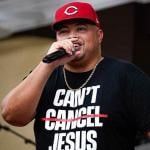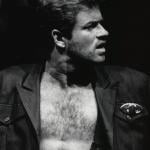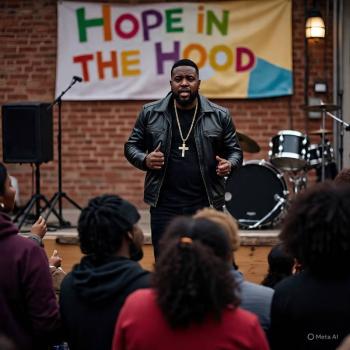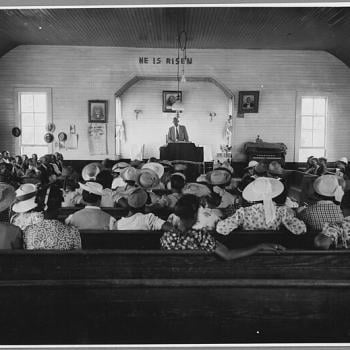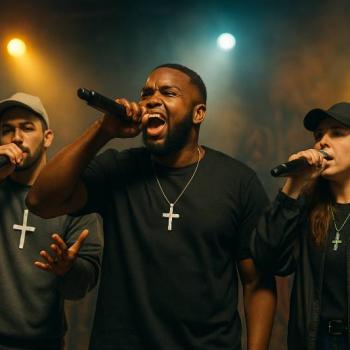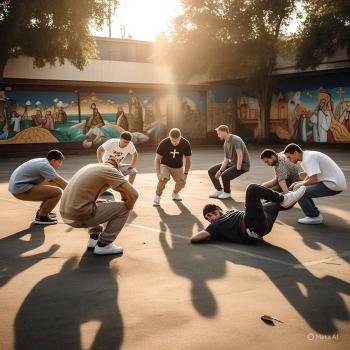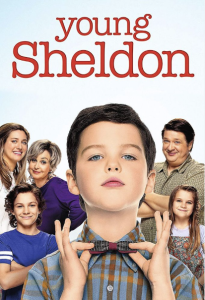
September 25, 2017. The date may not stand out to most. For others, this was the beginning of a new era in the repertoire of The Big Band Theory. The quirky cast of adults were soon to enter their final episode (May 16, 2019) and so began the prequel, Young Sheldon. The show ran for 7 seasons ending on October 17, 2024.
The series took viewers through the adolescence of Sheldon Cooper (voice of Jim Parson), a main character on The Big Bang Theory. Episodes unfolded in the 1980 – mid 1990s pop culture. Throwbacks to the early age of technology was a welcomed departure for sitcom audiences. The show gained multiple actors awards during its regular seasons including Critics’ Choice Television Awards (2019, 2022, 2023) and the People’s Choice Awards (2022).
A recurring theme is the punchy interaction between the local pastor and the cast. Weaving through sinful lust and prideful desires, the main pastor, Pastor Jeff Difford (Matt Hobby), toes a line between quasi-evangelic and the common man. His religious insights have much to say in the way of actual pastoral hermeneutics. Yet, to see a quirky young pastor on a recurring sitcom is a bold step. The pastor’s ministry can be read alongside the pop cultural attitudes of the day when applied to biblical doctrine. Short, quick, bumper sticker style preaching is his forte. There are very few episodes when any close representation of a religious ethic is supplied.
A surprising turn happens in the 5th season of Young Sheldon. A new young pastor is introduced, Pastor Rob (Dan Byrd), hired by Pastor Jeff to teach Sunday School and help with the lighter duties of the local church. Throughout the next two seasons, Pastor Rob’s character develops as one situated in the culture of the town including a potential affair with Mary Cooper (Zoe Perry), the mother of Sheldon Cooper (Ian Armitage).
While placating to an reminiscent spirit, I came across Season 6, Episode 9 (Part 1 and 2), “The Game.” The episodes engage the usual multiple storylines with one being centered around George Cooper Sr. (Lance Barber), Sheldon’s father and Pastor Rob. George Cooper is the high school football coach. During the regular season the team asks Pastor Rob to pray for them before a game. The team, predicted to loose the game, came out victorious and gave credit to the introduction of Pastor Rob and his prayers. George Cooper was set on his coaching technique as the success for the team. This dialectic is where the sub story takes an interesting turn for a socio-religious critique.

The Game
Season 6, Episode 9,”The Game” (Part 1) – https://www.youtube.com/watch?v=HruD3a42beU
In the week following the game, we see Pastor Rob being entertained with the teachers casually when George Cooper arrives. The exchange between these two characters is sub textually around who obtains credit for the win by the team. The stereotypical tug of war between man and God is not presented. What does surface is man’s (read: George Cooper’s opinion) desire to obtain credit for the noted success. The pastor does not confront this opportunity to speak to these glaring differences, nor offer any consultation to George Cooper to address his prideful desires. The lack of response from the pastor does heat George Cooper’s attitude toward his pressing desire to obtain the credit he feels he is due. The age old marker of man’s quest for acceptance and self satisfaction underscore his position. Pastor Rob pivots away from this potential exchange one might frame as his own safety net for religious security. It’s worth noting that he is a young pastor and may feel less equipped to discuss these issues with what he holds as an authority figure in the high school community. However, his choice to abstain from the well-timed conversation to address how one can grapple with selfish desires to see how God can, and does, help to overcome obstacles leaves this moment pregnant with context yet absent with engagement. Outlining this context is a supporting female character set on gaining physical attention from the pastor through verbal taunts, minor sexual leaning questions, and physical cues pointing to her own selfish desires. Pastor Rob finds himself in a socio-religious pickle with a woman’s desire in one area and a man’s selfish intent in the other. Yet it is the uneasy nature and non-communication manner that speaks the most; he’s not prepared to address these evangelical opportunities nor scripture responsibilities incumbent of a pastor. In this instance, man – both male and female – win the innocent theological skirmish. The “Medford Miracle” is coined as the victory for the football team. This cliche can be applied to Pastor Rob’s ability to thank God for his blessing to the team’s victory while navigating away from any substantial biblical engagement.
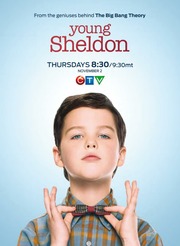
Then There’s The Talk
“Hey Coach, you got a second?” Those proverbial words point directly to an issue at hand. Pastor Rob comes to George Cooper, who is studying for the next game, an apart heated battle. Pastor Rob’s intent is to provide feedback to the coach from the team on his coaching interaction and style, a bit harsh from the viewpoint of the team. George Cooper positions himself as the authority throughout the dialogue. Naturally, Pastor Rob falls back on his well-defined subdominant posture. However, in this dialogue, Pastor Rob does not allow his minimal position to reduce further in the overbearing presence of George Cooper. He sticks to his point, convey the information from the team as a supporting community member. His place at the school on that day was to simply listen to the player share their insight. George Cooper dominates the conversation not holding back his verbal jabs to the pastor. Throughout, George Cooper builds his pride further by analyzing the scarce information provided and thrusting back his negativity to the pastor. A textbook example of man’s willingness to blame God for a negative outcome. George Cooper allows his sin nature, hinged on his pride, as his catharsis expressing this against the messenger, in this case the pastor. The difference in this situation is the pastor’s steady position to deliver a message. It’s not a scripture message, but he does present it as one of value. In doing so, George Cooper’s attitude and dominance grows, further fueling his pride. The sought after tug of war between perspectives is flirted yet not fully addressed. Had the young pastor seen a pathway in speaking to George Cooper about his own selfish and prideful issues driving his negative responses, further moments to express scripture to council George Cooper may have been acquired. Rather, the young pastor holds secure in a non-confrontational position allowing George Cooper’s bullish tone and demeanor to override the conversation once again. By this point, the viewers are left with a lukewarm approach to the pastor while codifying further George Cooper’s well-defined bearish stance. Another win for man’s selfishness? Unbeknownst to him, George Cooper is playing out the part of mans’ destined fall from grace. He rides on his pride and self assurance not giving any moment or consideration to the work of God in these events. Pastor Rob is performing the role of the messenger seeking to find a way to express any biblical truth to in these conversations. The socio-religious discourse is clearly situated and the characters each are displaying the presumptive narratives. What stalls the momentum of biblical edification and sharing is the young pastor’s over arching cowering nature in the face of a firm adversary.
A Moment Of Truth?
Season 6, Episode 9, “The Game” (Part 2) – https://www.youtube.com/watch?v=Ai16OIl_5xs
The second part of the episode focuses on the big game. George Cooper prompts his team to get ready as they corral in the locker room pre game. Then it happens, the team asks for Pastor Rob. They are seeking his spiritual council by way of a pre-game prayer. Anticipating this moment, George Cooper has prepared the team ahead of schedule to avoid this expectation. “Ya all want a prayer, I’ll give you a prayer…,” George Cooper announces to the team. On air, in a secular television program we hear the words, “Heavenly Father, bless this team and the hands that…catch the ball…and…” Eyes closed, calming voice and tone (recalling the previous confrontation with Pastor Rob who expressed George Cooper’s harsh language and tone to the players), and with as much reverence a man who is not shy about his lack of faith, George Cooper attempts to pray as he stumbles through quasi-religious rhetoric lined with personal interest. George Cooper’s insincere attempt at the prayer brings an “Oh, boy” from his assistant coach illustrating the fictitious nature of this haphazard prayer.
As George Cooper disintegrates in his limp prayer Pastor Rob arrives. Pulling the plug from under George Cooper, the assistant coach interrupts with, “Oh, Pastor Rob is here, you can stop.”
“No, no, you go ahead, I’m sure you’re doing great,” follows Pastor Rob. Again, the young pastor submits to the dominant presence of George Cooper. If we contextualize the location, the locker room, it’s fitting that George Cooper took this moment – albeit one he deviously planned to avoid prayer – in what he would consider his “church,” the football locker room Throughout the run of Young Sheldon, George Cooper returns time and again to football as his idol. Seeing that he would even attempt to pray, it’s no coincidence that his first attempt is in his “sacred space,” the football locker room, and on what wold be his “sacred day of worship,” game day.
“Come on Pastor Rob, we want you to do it,” a player speaks for the entire team (read: George Cooper’s “congregation”). It’s no surprise that George Cooper turns over this right to Pastor Rob, who openly accepts. If this were the only time where Pastor Rob is able to gain a step forward in sharing his basic scripture knowledge that would suffice. As we will see, Pastor Rob applies this minor step, couched with his subdued approach to George Cooper, as the tangible space to celebrate his gained confidence to the team as a prayer advocate.
Rolling of the eyes, and a grimace of distaste, George Cooper steps aside for the moment giving the platform to Pastor Rob as he begins a prayer, “Heavenly Father, bless this team,” “Exactly what I said.” It’s a quick moment highlighting a dangerous juncture between a non-faith-based and a faith-based perspectives.

Deconstructing the Scene: The Importance of Prayer
The point remains, having the phrase, “Heavenly Father” stated twice in a prime time sitcom, in the span of 30 seconds holds value when it’s positioned socio-religiously. Critics may find this minor 1:27 portion unimportant. I would argue that to have such a socio-religious dialectic presented to a largely secular audience opens the conversation for the relevance, power, and necessity of prayer. A counterpoint to this would be the location of which this prayer was taking place, in a Texas public school. Taking together a highly conservative state, and the invitation for the prayer by the students, supersedes audience opinion about this action. George Cooper serves as the icon opposition against this action; Pastor Rob qualifies in the advocate position. The judge and jury in this context is the team, and they have sided with the acceptance of prayer, thus overriding the dominance George Cooper has continued to hold over this “congregation.”
On the field, the team is hit with a situation, how to win the game with 4-seconds remaining? After a botched play, George Cooper results to his standard “Jess!” comment of disgust. The background is set for the second game, or battle over prayer, to commence. Pastor Rob passes a sigh of concern about the next play as George Cooper makes a textbook decision. “What?” “Nothing.” “You got somethin’ to say, say it. Let’s hear it.” The tense back and forth is short but primes the moment for Pastor Rob to execute his limited power over George Cooper. Making a suggestion which George Cooper and his assistant coach feel is naive, George Cooper moves his chess piece to accept the suggestion. “Rob got us a win last week all on his own, who are we to say no?” George Cooper makes his chess move laced with sarcasm and disbelief in the collected prayers supplied at the earlier game. “Are you sure?” the assistant coach inquires. “Yeah, I’m sure. What’s the worst that could happen?” “We could lose.” “Yup, and who would be blame?” Absent of Pastor Rob, the assistant coach, serving in the position as a outside observer questioning the fake, faith induced, sarcastic approval by George Cooper to Pastor Rob’s suggestion. The swelling pride of George Cooper is not stated verbally, it’s articulated physically, non-communicative. His power stance remains chiseled and poised, his glutenous pride visibly rises. “I won’t tell you how to do your job, but if I was a praying man, I’d start right now.” George Cooper’s chide back to Pastor Rob’s weakening stature yields the obvious, the young pastor begins to pray. The entire prayer lasts on scene for 2 seconds. Hands typically folded, eyes closed, the entire fleeting moment is shrouded by smug attitude of George Cooper. Faith in the face of adversity; a narrative well documented throughout scripture. This pop cultural tag back to the David and Goliath storyline may not readily jump in the minds of some viewers. But to have this exchange performed in a sitcom may soften the blow to those who take away the difference between an active prayer life and that of a non-faith-based individual.
Pulling together all the elements of prayer/prayer request, context, and subtextual faith perspective, this portion of the episode appears to trivialize the power of prayer and faith. Yet, to even see this level of positive attention to faith in a popular sitcom for the time remains poignant. The characters of the church (the locker room), the congregation (the football team), the day of worship (the football game), aligned with the power struggle between faith (Pastor Rob) and non-faith (George Cooper) read this episode as one available tor the conversation of the necessity of prayer in the daily life, no matter how small. The larger socio-religious argument would engage the relevance of prayer in a public school. George Cooper does not deflect this request but uses it as he sees to his advantage to cease any further aptitude for prayer in his “church.” In contrast, the action of prayer is seen as being applicable. The context and addressing of the prayer is flippant, praying over a win for a high school football team. Yet, the underlining argument is for the activation of prayer in ones daily life. Discipline in prayer must start at some personal point. Expressed to a large secular audience, the use of a football game as the location to build a prayer life may not seem relevant, but the foundation of the point – the importance of prayer – is underscored.
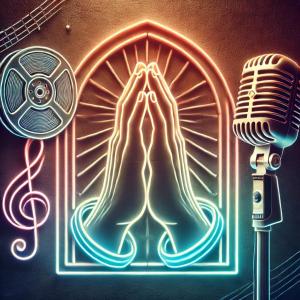
Prayer in Pop Culture
The final moments of the episode show George Cooper wallowing in his dismay that the team won. He is burdened by the assumed realization that prayer works. “George, you crazy…I can’t believe you pulled that off.” :Me nether.” “Looks like we make a pretty good team George,” states Pastor Rob. Hanging in dissatisfaction, George Cooper non-verbally articulates the stereotyped viewpoint of non-faith-based individuals, there is no power in prayer and this was not this success was not to have happened. Rather than accept the win, George Cooper elects, like most, to enjoy the deflated, negative attitude against the moment unwilling to even consider the notion that prayer might have played a factors, no matter how small. The opportunity for George Cooper to see how prayer can be infused in his work (read: idol) as a point of spiritual support is completely removed from his expression. It his desire to remain dependent on his own attributes and work to make what success his obtains. This short moment is the invitation for George Cooper, like many, to see how they can move beyond their own works-based dependance and being to entertain the importance of prayer and a relationship with God. George Cooper plays the role of the pop culture skeptic to the limit, while the well worn, time-honored theme of meekness depending on prayer in the face of adversity unfolds. It is a David and Goliath archetype and the needle has not moved from the importance of that scripture; faith in God is bigger than the battles we face. Give it to Him, and His power will be sufficient to overcome the struggle.


